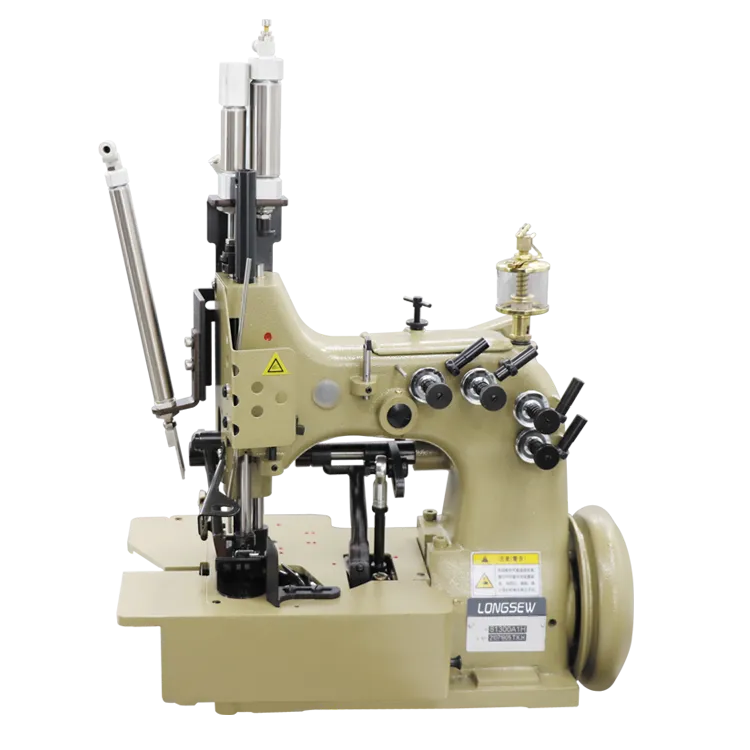sewing machine that can sew through thick fabric
The Versatile Sewing Machine Your Ally for Thick Fabrics
Introduction
In the world of crafting and garment making, the sewing machine stands as an invaluable tool. As sewing enthusiasts venture into more complex projects, they often encounter the challenge of working with thick fabrics such as denim, leather, or multiple layers of quilted material. The right sewing machine can make a significant difference in achieving professional results. This article explores the characteristics of sewing machines designed to handle thick fabric, highlighting the features you should consider for your next purchase.
Understanding Thick Fabrics
Thick fabrics present unique challenges. They require a machine that can penetrate multiple layers effectively, provide consistent tension, and handle the weight without skipping stitches or causing thread breakage. Materials like upholstery fabric, canvas, and heavy denim demand not only power but also precision. Therefore, having a reliable sewing machine capable of tackling these textiles can open a world of possibilities for professional-tailored garments, home decorations, and various craft projects.
Key Features of a Thick Fabric Sewing Machine
1. Powerful Motor A sewing machine's motor is crucial when sewing through thick materials. A more powerful motor generates higher torque, enabling the needle to pierce through layers of fabric with ease. When choosing a sewing machine, look for those equipped with heavy-duty motors designed specifically for thick or layered textiles.
sewing machine that can sew through thick fabric

2. Walking Foot This attachment is a game-changer when it comes to sewing thick fabrics. The walking foot holds the top layer of fabric evenly while the feed dogs move the bottom layer, preventing slipping and ensuring even stitching. Many machines are compatible with or come with a walking foot, making them ideal for quilting and sewing multiple layers.
3. Needle Type and Size Using the correct needle is essential when working with thick fabrics. A heavier needle, such as a size 16 or 18, is often required to puncture thick layers. Furthermore, specific needle types, like denim or leather needles, are designed with stronger blades and a deeper groove to accommodate thicker threads. When using your sewing machine, always ensure you have the appropriate needle for the fabric type.
4. Adjustable Presser Foot Pressure Having the ability to adjust the presser foot pressure is vital for sewing thick fabrics. Machines that allow you to customize this setting can effectively manage various fabric thicknesses without causing puckering or uneven stitches. This feature ensures that delicate materials are not crushed while robust fabrics are held firmly in place.
5. Stitch Variety A good quality machine will offer a variety of stitches to accommodate different sewing techniques. While straight stitches are essential for seams, decorative stitches can enhance the visual appeal of your projects. Look for machines that provide at least a few built-in stitch options to expand your creative capabilities.
Conclusion
Investing in a sewing machine designed for thick fabrics is not simply about accomplishing specific projects; it's about enhancement of your overall sewing experience. By focusing on machines with powerful motors, walking feet, proper needle configurations, adjustable presser foot pressure, and a range of stitch options, sewing enthusiasts can elevate their craft and achieve outstanding results on even the thickest materials. Whether you are a seasoned sewer or just starting, having the right tools at your disposal will undoubtedly inspire creativity and transform your sewing journey into a more enjoyable and fulfilling endeavor. So, take the plunge, explore your options, and discover how a high-quality sewing machine can help you master the art of sewing through thick fabric.
-
Boost Production Efficiency with a Pattern Sewing MachineNewsAug.29,2025
-
Industrial Excellence with the Best Heavy Duty Sewing MachineNewsAug.29,2025
-
Precision and Power with the Best Pattern Sewing MachineNewsAug.29,2025
-
Reliable Bulk Packaging Starts With the Right FIBC Sewing MachineNewsAug.29,2025
-
Advanced Packaging Solutions: Elevate Productivity with Jumbo Bag Sewing Machine and Industrial Stitching EquipmentNewsAug.29,2025
-
High-Performance Solutions for Bulk Packaging: FIBC Sewing Machine and MoreNewsAug.29,2025
-
Maximize Efficiency with an Industrial Cylinder Arm Sewing MachineNewsAug.28,2025


























